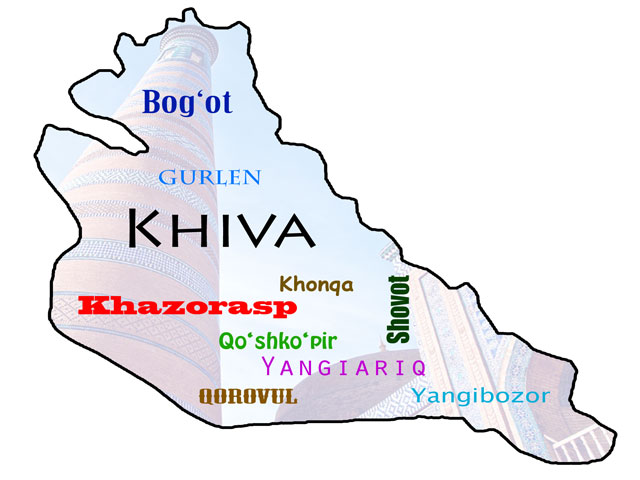Khiva is one of the largest and most ancient city centres of the Khoresm agricultural oasis, located in the southern delta of the Amu Darya River, south of the Aral Sea, in the west of the Central Asia. The Kyzyl-Kum desert begins here.
Between the IX and XII centuries, a number of Muslim educational institutions, and large centres of science functioned successfully in Khoresm: schools of astronomy, mathematics, medicine and chemistry. Muhammad-al-Khoresmi’s fundamental works in mathematics, geography, and geodesy were already known in Europe by the IX century, and have not lost their importance to the present day.
Amir Timur pursued five campaigns in Khoresm in the XIV century, but only in 1388 did he manage to win it completely. In due course, Khoresm blossomed again, and for a short period became one of the most important spiritual centres of the Muslim world. After Khiva’s khanate was formed at the beginning of the XVI century, Khiva became its capital in 1598.
Red Army units dethroned the last Khivan Khan’s power in 1919 and Khiva became the capital of the Khoresm Soviet National Republic in 1920.In 1924, the Khoresm oasis area was included in the Uzbek and the Turkmen Republics, which became independent states in 1991.
The architectural monuments of Khiva are of unique value to the world, with the city rightfully bearing the epithet of “City Museum”. The city of Khiva was one of the first in Central Asia to be added to the UNESCO list as a place pertaining to the world heritage of mankind in 1990. Khiva celebrated its 2500th anniversary under the aegis of UNESCO in 1997.






















